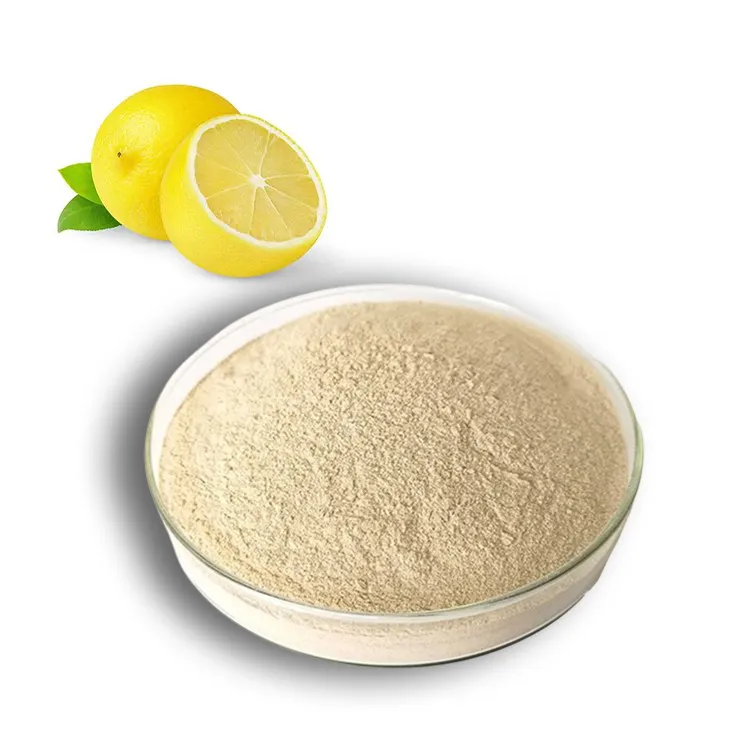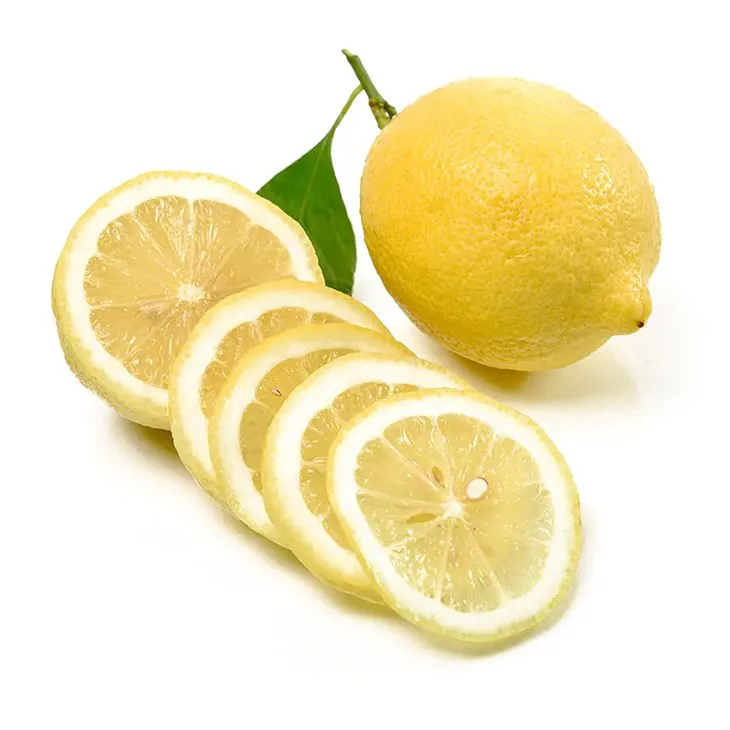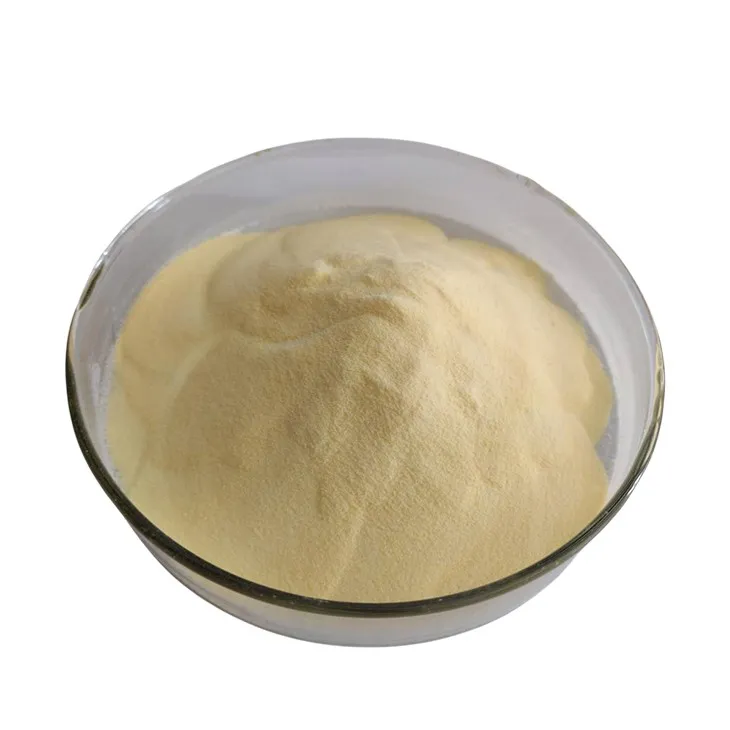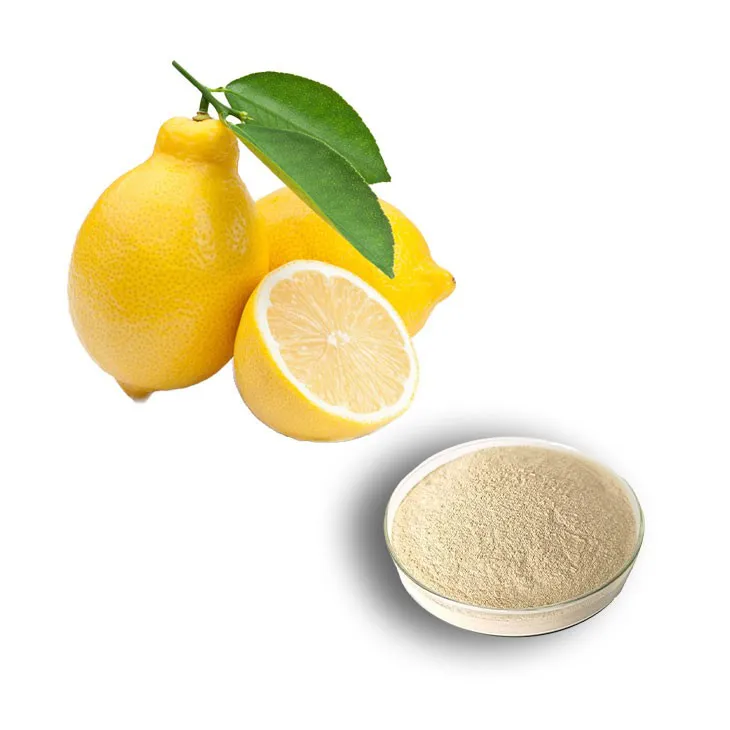- 0086-571-85302990
- sales@greenskybio.com
Lemon Extract: Uses, Advantages, and Manufacturing Processes
2024-11-13

1. Introduction
Lemon Extract has emerged as a highly versatile and valuable ingredient in various industries. Derived from the lemon fruit, this extract encapsulates the essence of the lemon, offering a concentrated burst of its characteristic flavor, aroma, and beneficial properties. Its popularity has been on the rise, owing to its multi - faceted nature and the growing consumer preference for natural and plant - based products.

2. Uses in the Food Industry
2.1 Flavor Enhancement
In the food realm, Lemon Extract is a go - to ingredient for flavor enhancement. It imparts a distinctively zesty, tangy, and refreshing flavor that can transform the taste profile of a wide range of dishes and beverages. For example, in baking, it is used in cakes, cookies, and muffins to add a bright and citrusy note. It can also be used in frosting and icing to give an extra layer of flavor.
2.2 Culinary Applications
- In Desserts: Lemon Extract is a staple in many classic desserts. It is used in lemon bars, where it provides the characteristic lemon flavor that pairs well with the buttery crust. In custards and puddings, it adds a tangy twist, making the dessert more interesting and less cloying.
- In Beverages: Lemon - flavored drinks are extremely popular, and lemon extract is an essential component in creating these beverages. It can be used in lemonades, both traditional and flavored varieties. In cocktails, it adds a fresh and citrusy element, for example, in a gin and tonic with a splash of lemon extract for an extra zing.
- In Sauces and Dressings: Lemon extract is used in salad dressings to give a tangy flavor that cuts through the richness of oils and other ingredients. In savory sauces, such as hollandaise or béarnaise, a touch of lemon extract can enhance the overall flavor profile, adding a bright note.

3. Uses in the Beauty Industry
3.1 Skin - Brightening Properties
Lemon extract is renowned for its skin - brightening abilities. The natural acids present in the lemon, such as citric acid, help to exfoliate the skin gently. This exfoliation process removes dead skin cells, which can dull the complexion. By doing so, it reveals the fresher, brighter skin underneath. Regular use of products containing lemon extract can lead to a more even - toned and radiant complexion.
3.2 Cleansing Abilities
- Lemon extract has antibacterial properties, which make it effective in cleansing the skin. It can help to fight off acne - causing bacteria, reducing the occurrence of breakouts. It is often used in facial cleansers and soaps for this reason.
- It also has astringent properties, which means it can tighten the pores. This helps to keep the skin clean and reduces the appearance of enlarged pores, giving the skin a smoother and more refined look.

4. Advantages of Lemon Extract
4.1 Eco - friendly and Plant - based
One of the significant advantages of lemon extract is its eco - friendly nature. Being derived from lemons, a natural plant source, it is a sustainable ingredient. Lemons are widely cultivated, and the extraction process generally has a lower environmental impact compared to synthetic alternatives. This makes it an attractive option for consumers who are environmentally conscious and prefer products with a reduced carbon footprint.
4.2 Adaptability to Different Product Formulations
Lemon extract is highly adaptable in different product formulations. It can be easily incorporated into various products in the food and beauty industries. In the food industry, it can be added to both liquid and solid products without significant changes to the overall formulation. In the beauty industry, it can be blended with other natural ingredients like oils, butters, and plant extracts to create effective skincare and haircare products.

5. Manufacturing Processes
5.1 Harvesting of Lemons
- The first step in the manufacturing of lemon extract is the harvesting of lemons. Lemons are typically harvested when they reach the appropriate level of ripeness. This is crucial as the flavor and quality of the extract depend on the quality of the lemons used. Over - ripe or under - ripe lemons may not yield the best - quality extract.
- Harvesting is usually done by hand to ensure that only the suitable lemons are picked. This also helps to minimize damage to the fruit during the harvesting process.
5.2 Extraction Methods
- Cold - Pressing: One of the common methods of extracting lemon extract is cold - pressing. In this process, the lemons are mechanically pressed to extract the juice. This method is preferred as it helps to preserve the natural flavor and beneficial compounds of the lemon. The juice obtained is then further processed to obtain the extract.
- Solvent Extraction: Another method is solvent extraction. In this process, a suitable solvent is used to extract the active compounds from the lemon peel or pulp. The solvent is then removed, leaving behind the concentrated lemon extract. However, this method requires careful handling to ensure that no solvent residues are left in the final product.
5.3 Purification and Concentration
- After the initial extraction, the lemon extract may need to be purified. This involves removing any impurities such as pulp particles, seeds, or other unwanted substances. Filtration is a commonly used method for purification, where the extract is passed through a fine filter to remove these impurities.
- The purified extract is then concentrated to increase the strength of the flavor and the concentration of the active compounds. This can be done through evaporation, where the excess water or solvent is removed, leaving behind a more concentrated lemon extract.
6. Quality Control in Lemon Extract Production
6.1 Testing for Purity
Quality control is an essential aspect of lemon extract production. To ensure the purity of the extract, various tests are carried out. These include tests for the presence of contaminants such as pesticides, heavy metals, and other harmful substances. Chromatography techniques are often used to analyze the composition of the extract and detect any impurities.
6.2 Flavor and Aroma Analysis
- The flavor and aroma of the lemon extract are also carefully analyzed. Sensory evaluation by trained panelists is a common method used to assess the quality of the extract in terms of its taste and smell. The extract should have a characteristic lemon flavor and aroma, without any off - notes or rancid smells.
- Instrumental analysis such as gas chromatography - mass spectrometry (GC - MS) can also be used to identify and quantify the volatile compounds responsible for the flavor and aroma of the lemon extract.
7. Conclusion
In conclusion, lemon extract is a remarkable ingredient with a wide range of uses and numerous advantages. Its applications in the food and beauty industries are extensive, and its natural origin makes it an appealing choice for both consumers and manufacturers. The manufacturing process, although complex, is carefully controlled to ensure the production of high - quality lemon extract. With the increasing demand for natural and sustainable products, lemon extract is likely to continue to play an important role in various markets in the future.
FAQ:
What are the main uses of lemon extract in the food industry?
Lemon extract is mainly used in the food industry to add a unique zesty and inviting flavor to various products. It can be used in baking, for example, to enhance the flavor of cakes, cookies, and pastries. It is also used in the preparation of beverages like lemonade, cocktails, and some flavored waters to give a refreshing lemon taste.
How does lemon extract contribute to skin - brightening in the beauty industry?
Lemon extract contains natural acids such as citric acid. These acids can help exfoliate the skin gently, removing dead skin cells on the surface. This exfoliation process can reveal fresher, brighter - looking skin underneath. Additionally, it may also help in reducing the appearance of dark spots over time with regular use.
What are the steps involved in the manufacturing process of lemon extract?
The manufacturing process of lemon extract is carefully controlled. First, high - quality lemons are selected. Then, the peel and sometimes the juice of the lemons are processed. This often involves methods like cold - pressing to extract the essential oils and flavors. The extracted components are then purified and concentrated to form the lemon extract. Quality control measures are in place throughout the process to ensure consistency and purity.
Why is lemon extract considered eco - friendly?
Lemon extract is plant - based, which makes it an eco - friendly option. Since it comes from lemons, a natural plant source, it is biodegradable. Also, compared to some synthetic alternatives, its production typically has a lower environmental impact as it doesn't involve complex chemical synthesis processes that may produce harmful by - products.
How can lemon extract be adapted to different product formulations?
Lemon extract's adaptability lies in its concentrated yet flexible nature. In different product formulations, it can be used in small amounts to add a hint of lemon flavor or in larger amounts for a more pronounced taste. In beauty products, it can be combined with other natural ingredients like oils and herbs to create different skin - care formulations. In food products, it can be incorporated into both sweet and savory recipes depending on the desired flavor profile.
Related literature
- The Comprehensive Guide to Lemon Extract in Food and Cosmetics"
- "Lemon Extract: Production, Properties, and Applications"
- "The Role of Lemon Extract in Sustainable Ingredient Usage"
- ▶ Hesperidin
- ▶ citrus bioflavonoids
- ▶ plant extract
- ▶ lycopene
- ▶ Diosmin
- ▶ Grape seed extract
- ▶ Sea buckthorn Juice Powder
- ▶ Beetroot powder
- ▶ Hops Extract
- ▶ Artichoke Extract
- ▶ Reishi mushroom extract
- ▶ Astaxanthin
- ▶ Green Tea Extract
- ▶ Curcumin Extract
- ▶ Horse Chestnut Extract
- ▶ Other Problems
- ▶ Boswellia Serrata Extract
- ▶ Resveratrol Extract
- ▶ Marigold Extract
- ▶ Grape Leaf Extract
- ▶ blog3
-
High purity olive leaf extract
2024-11-13
-
Lavender oil extraction method
2024-11-13
-
100% organic virgin sea buckthorn fruit oil
2024-11-13
-
Lotus leaf extract powder factory in China
2024-11-13
-
China aged garlic extract supplier
2024-11-13
-
Deer antler extract powder manufacturer
2024-11-13
-
Saw palmetto extract vs whole herb
2024-11-13
-
Aminolevulinic acid
2024-11-13
-
Sea buckthorn oil
2024-11-13
-
Calendula Extract
2024-11-13
-
Angelica sinensis extract
2024-11-13
-
Grape Leaf Extract
2024-11-13
-
Green coffee bean Extract
2024-11-13
-
Sophora Japonica Flower Extract
2024-11-13
-
Lavender Extract
2024-11-13
-
Sophora Flavescens Root Extract
2024-11-13
-
Hawthorn powder
2024-11-13





















